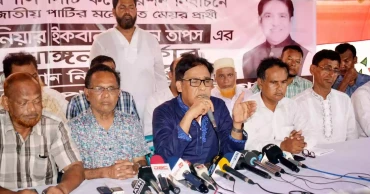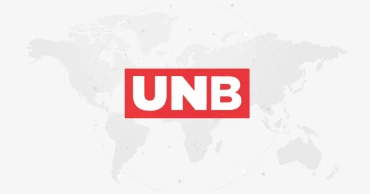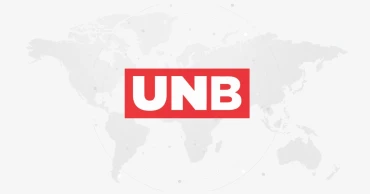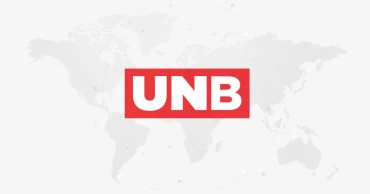BCC
BNP's decision to boycott polls was right: defeated candidate Taposh
BNP made the right decision by boycotting the election as the result was fixed behind the scene, said Jatiya Party's defeated candidate in Barisal City Corporation (BCC) election Engineer Iqbal Hossain Taposh on Tuesday.
He termed the election as ‘farce’ and urged the Chief Election Commissioner (CEC) to resign because of the election fraud with people.
Also Read: BCC polls: 19 BNP leaders expelled for life in Barishal
“The government and the Election Commission have staged digital dramas with the people…BNP has taken the right decision by choosing to boycott the election. The election result was made backstage,” he said.
He made these remarks at a press conference at the main election office of the plough symbol on Oxford Mission Road in Barishal city.
Also Read: AL-backed mayoral candidate Abul Khair Abdullah wins Barishal City Corporation election
He alleged that the administration, the presiding officers and the returning officers of the centers made various excuses and delayed in allowing his agents to enter the centers on time.
Taposh condemned the attack on the mayoral candidate of the Islami Andolan and demanded speedy justice.
Also Read: Islami Andolan Bangladesh rejects Barishal, Khulna city polls results
Chief Election conductor of Jatirya Party’s Plough symbol Professor Mohsin-ul-Islam Habul, District Jatiya Party member secretary Advocate MA Jalil, among others, were present at the press conference.
Also Read: Barishal city polls: Woman says Islami Andolon supporter attacked her over recording video
2 years ago
Barishal Mayor Sadik calls UNO ‘stupid’ during Zila Parishad election
Barishal City Corporation (BCC) Mayor Serniabat Sadik Abdullah today (October 17, 2022) had an incident with Barishal Sadar Upazila Nirbahi Officer (UNO) Md Moniruzzaman while entering a polling centre during the ongoing Zila Parishad election.
In a video shared from the Barishal mayor’s Facebook page, it was seen that the mayor tried to enter Barishal Zila School polling centre with a group of public representatives and the UNO barred him.
Read: Barishal clash: Two cases filed against UNO Munibur Rahman
“Have I entered the polling centre yet? Why are you creating a scene? Am I a child who doesn’t know the rules? Why are you talking like a stupid person?” Sadik asked Moniruzzaman during an angry outburst.
Shocked, the UNO then tried to recollect himself by telling Sadik that he didn’t say anything to him. Later, the UNO told journalists that the news of an altercation between him and the Barishal mayor was “unfounded”.
Read Polls underway at 57 Zila Parishads
On August 18, 2021, BCC Mayor Sadik got into a heated argument with former Barishal Sadar UNO Munibur Rahman over removing banners. Gunshots were fired during the incident, and three cases were filed with the local police station over the matter.
3 years ago
BCC sues 8 edible oil refiners for unfair price hike
Bangladesh Competition Commission (BCC) has filed a case against eight edible oil refining companies accusing them of ill motive in hiking price of edible oil.
The commission filed the case on Wednesday in the national interest under sections 15 and 15 (2) of the Competition Commission Act, it said.
Read: Over 92,000 litres of edible oil seized in Rajshahi, 5 held
BCC sources said that under Section 15 (2) (b) of the Competition Commission Act, the eight companies have been charged with restricting or controlling the production, supply, market, technical development, investment or provision of services.
The Article 15 of the Commission Act states, “No one shall be involved in ill motive directly or indirectly in any contract or instrumentation of production, supply, distribution, warehousing or acquisition of goods or services. By doing so, the commission will be able to take legal action against them in case of adverse effects on the market, monopoly or oligopoly.”
Read: The oily confession and our ministers
The eight companies are: City Edible Oil Limited, Bangladesh Edible Oil Limited (BEOL), Meghna and United Edible Oil Refinery Limited, Bashundhara Oil Refinery Mill, Shabnam Vegetable Oil, Prime Edible Oil Limited and Globe Edible Oil Limited.
3 years ago
Bilateral pacts on the cards to boost Canadian investment in Bangladesh
Dhaka and Ottawa are likely to ink two key pacts to increase Canadian trade and investment in Bangladesh.
"The free trade pact and the foreign investment promotion and protection agreement between the two countries are on the table," Bangladesh's High Commissioner to Canada, Dr Khalil Rahman said.
The veteran diplomat was addressing a virtual meeting of the Canada-Bangladesh Joint Working Group on Strengthening Commercial Relations on Monday night.
Read: Joint committee to work to brand Bangladesh in Canada
Citing the complexity of Canadian visa process as a major obstacle to bilateral trade, the High Commissioner said that "discussions are also underway to set up a visa office at the Canadian High Commission in Dhaka".
Mentioning the Business Council of Canada's (BCC) interest in Bangladesh, the High Commissioner said the organisation sought sector-based information from the Bangladesh High Commission in Canada.
The High Commissioner also proposed the signing of an MoU between the Federation of Bangladesh Chambers of Commerce and Industries (FBCCI) and the BCC to strengthen Canada-Bangladesh trade and investment relations.
FBCCI President Md Jashim Uddin, co-chair of the meeting for Bangladesh, said that the plastics industry is one of the most promising sectors for Canadian entrepreneurs to invest in. "In addition to the huge domestic market, the world market also has strong export potential."
Moreover, he spoke about the huge demand for plastic products as a backward linkage industry in the readymade garments, pharmaceuticals, engineering and automobile industries.
President of Bangladesh Plastic Goods Manufacturers and Exporters Association (BPGMEA), Shamim Ahmed presented a report on the market and investment prospects of the plastics industry.
"Some 1.2 million people are working in the sector and direct and indirect exports are worth 1 billion US dollars. The sector is growing at an average rate of 4 percent per year. All the 29 sub-sectors of plastics have export potential."
He also mentioned the various policy assistance provided by the government for foreign investors.
President of the Canada-Bangladesh Chamber of Commerce and Industry, Masud Rahman presented a report on the Canada-Bangladesh investment prospects at the meeting.
According to the report, Bangladesh's infrastructure sector could be one of the biggest investment opportunities for Canadian entrepreneurs. "Canadians can contribute to the development of this sector through public-private partnerships."
"Therefore, the country's investment bank, Export Development Canada (EDC), can play a role in increasing investment in the country through the formation of 'Bangladesh Fund'. Canadian Pension Fund may also appear to be a good source for financing investment in Bangladesh," he added.
Md. Saiful Islam, a member of the working group and director of the FBCCI, emphasised the need for working out a specific course of action to increase bilateral trade to 2 billion dollars.
Read: Canada provides 2.2mn doses of AstraZeneca to Bangladesh
He called on Canadian entrepreneurs to invest and transfer technology in the agricultural sector.
Nuzhat Tam-Zaman, the co-chair from the Canadian side, said the joint working group should work on education too.
She said that more Bangladeshi students should be brought to Canadian universities. "Then the number of Bangladeshis in Canada's skilled human resource immigration will also increase."
President of the Saskatchewan Trade and Export Partnership Chris Decker, leader of Energy Sector Group Gowling WLG Tom Timmins, and Secretary General of the FBCCI Mohammad Mahfuzul Hoque were present in the meeting.
The meeting was moderated by Angela Dark, Senior Trade Commissioner, Canadian High Commission.
4 years ago
Destiny, Jubok clients can be compensated by 50 to 60 per cent by selling assets: Tipu Munshi
Commerce Minister Tipu Munshi on Sunday said that it’s possible to give 50 to 60 per cent money back to the cheated clients of the Destiny Group and Jubok by selling the assets of the two companies which collapsed amid widespread fraud.
“To my consideration, the cheated clients can get up to 50 to 60 per cent of the money back…. But the issue remains pending with the court for settlement”, he said while addressing a workshop organized by the Bangladesh Competition Commission (BCC) for the members of Economic Reporters Forum (ERF) at the BCC office in the city.
The BCC organized the event to discuss the issues for creating a fair competition environment in the market through implementation of the Competition Law.
Tipu said that he discussed the issue with the law minister who informed him that the law ministry has been working on how to compensate the Destiny and Jubok clients.
As per the estimation by different government bodies, Destiny and Jubok have about Tk 7,000 crore assets.
4 years ago
Bangladesh’s road to digitalisation: 59 hill unions to get broadband internet
Fifty-nine unions under the country’s three hill districts—Bandarban, Rangamati and Khagrachhari—will get permanent broadband internet connectivity soon as the Cabinet Committee on Economic Affairs approved a proposal in principle in this regard on Wednesday.
As per the proposal, Bangladesh Computer Council will implement the project through Bangladesh Army awarding it a contract through direct procurement method (DPM).
“The BCC will award the contract to the Bangladesh Army to implement the project,” said Shamsul Arefin, additional secretary to the Cabinet Division, while briefing reporters on the decisions of the Cabinet body.
Read: Nearly half of global population still lack internet access: UN Chief
The project was awarded to the Bangladesh Army considering the security risk and other relevant impediments in installing the optical fiber in remote areas of the hill tracks, he added.
The scheme will be implemented under the project titled, ‘Broadband Connectivity Setup at the telecommunication-deprived areas’ of the BCC under the Information and Communication Technology Division.
However, the figure of the contract was not disclosed at this stage of approval. But it might be revealed when the project will gain be placed for the final approval of the Cabinet Committee of Public Purchase.
Meanwhile, the Cabinet Committee on Public Purchase approved 11 proposals of different departments under different ministries involving Tk 2,579.30 crore of which Tk 890.62 crore will be spent from the national exchequer while the remaining funds will come as loans by different financing agencies.
The committee approved a proposal of the Public Security Division of Home Ministry to procure a “Vehicle Mounted Mobile Interceptor and related services” at a cost of Tk 56.56 crore from Toru Group Limited, Switzerland, whose local agent is Smart SCM Solution, Dhaka.
The supplier was selected through a limited tender method (LTM) from two bidders vying for the works, according to the proposal.
Two tender proposals of the Dhaka Water Supply and Sewerage Authority (Wasa) under Local Government Division also got approval of the Cabinet body.
Dhaka Wasa selected China Geo-Engineering Corporation, China for its project “Environmentally Sustainable Water Supply (DESWS)” under package -1 to install 25 km refined water transmission lines from Rampura to Kachukhet via Vatara, Airport Road, Uttara, Gulshan and Banani involving Tk 589.31 crore.
Read:Landslide warning: People urged to evacuate foothills in Rangamati
Dhaka Wasa’s proposal to extend the time and cost of the consultant for the same project also received the approval of the committee.
As per the approval, the Joint Venture of (1) Kunhwa-DDC-FCEA and (2) Vernacular Consultant Ltd. Bangladesh’s work tenure was extended up to 75 months from the existing 36 months with an increased cost of 2.71 crore against the original cost of Tk 19.85 crore.
A project of Bangladesh Water Development Board (BWDB) to construct a coordinated water control structure on the Punorbhara River in Dinajpur got approval raising its cost by Tk 12 crore against the original cost of Tk 43.74 crore.
A total of six proposals of the Roads and Highways Department under Road Transport and Highways Division also got nod of the Cabinet body.
Of these, China Railway Construction Bridge Engineering Bureau Group Co Ltd won a Tk 743.28-crore contract for interchange construction and maintenance under the improvement of Alega-Hatikamrul- Rongpur into a 4-lanes project.
Abdul Momen Limited won a Tk 601.10 crore contract for civil and maintenance works of the same project.
A proposal seeking a cost rise of Tk 47.88 crore for package PW-1 of the project to upgrade Cumilla (Tomson Bridge) to Noakhali (Begumganj) local road into a 4-lane highway received approval of the committee. Its original cost was Tk 193.84 crore.
The package PW-3 of the same project received a Tk 39.21 crore cost extension approval while its original cost was Tk 194.98 crore.
Read:Proposals to set up 15 MW HFO-power plant in Hatiya, 40,000 SHS in hill districts get nod
The package DW-05 of the Improvement of Important Local Highways (Sylhet Zone) received approval for extending the cost by Tk 16.81 crore against its original cost of Tk 186.98 crore.
The Roads and Highways Department’s awarding of a Tk 301.35 crore contract to National Development Engineers Ltd., to implement package – PW-01 of the Project for installing excel-load contract central at the transportation source points at important locations of the highways received the Cabinet body approval.
The Ministry of Labour and Employment’s proposal to appoint 112 non-government organizations (NGOs) for providing 6-month long sub-formal education and 4-month skill development training to 100,000 children at a cost of Tk 160 crore received the approval of the Cabinet Committee on Public Purchase.
4 years ago
`Hire and Train’, a model that impresses IT companies
The `Hire and Train’ model, introduced by the government to create skilled human resources on frontier technology to utilise the potentials of Fourth Industrial Revolution (4IR), has ensured ‘80% job placement’ in IT companies, officials said.
They said the beauty of the training model is that 80 percent or 856 of the 1070 trainees get jobs in different IT companies immediately after completion of the training that concluded last month.
Leveraging ICT (LICT) Project of Bangladesh Computer Council (BCC) under ICT Division engaged 32 companies to provide training in `Hire and Train’ model on frontier technologies like AI, IoT, Blockchain to the 1070 persons. The training was part of the Fast-Track Future Leader (FTFL) programme of the Project.
“When the government is working to develop a quality training model to ensure jobs for the trainees the `Hire and Train’ model has set a unique example by providing 80% job placement in IT companies,” said State Minister for ICT Zunaid Ahmed Palak adding that this model could be replicated in other training programmes of the ICT Division.
Palak said the government has taken various programmes, including organising training, establishing Sheikh Hasina Institute of Frontier Technology (SHIFT) and Centre of Excellence (CoE) to create skilled manpower on frontier technologies which are expediting the emergence of 4IR.
“We’re taking preparations to face challenges as well as utilise potentials of 4IR,” the ICT State Minister said.
When contacted, Senior Secretary of ICT Division NM Zeaul Alam said the government cannot sit idle at a time when frontier technologies are set to play a pivotal role in accelerating the fourth industrial revolution and boost the digital economy.
The government will not only continue to provide training on frontier technologies, but also help provide financial assistance to the potential startups based on frontier technologies like AI, IoT, blockchain, Augmented Realities, Virtual Realities, he said.
Project Director LICT Project Tarique M Barkatullah stressed the need for developing the best quality curriculum to ensure quality training and taking steps to introduce it in the educational institution. “Otherwise, we’ll be lagging behind in creating skills to be required to face the challenges of 4IR,” he added.
IT-ITES Policy Adviser of LICT Project Sami Ahmed who played a key role in introducing `Hire and Train’ model, said this model has proved to be very much effective as it ensures 80 percent job placement in IT companies. The training held on 22 different tracks on frontier technologies, including Artificial Intelligence (AI), Machine Learning (ML), Blockchain, Data Science, Augmented Reality (AR), Virtual Reality (VR), Internet of Things (IoT) on hire and recruitment model, he said.
Sami said the country’s 55 IT companies -- 35 of Dhaka and 20 of Jashore Sheikh Hasina Software Technology Park -- which are desperately looking for frontier-tech skilled manpower have benefited directly from this training.
4 years ago
Let people enjoy benefits of 'Digital Bangladesh': President
President Abdul Hamid on Saturday emphasised the importance of innovations instead of imitation to take the benefits of ‘Digital Bangladesh’ to people.
5 years ago
Huawei, ICT division wings join hands to kindle ICT growth
Huawei, in partnership with Bangladesh Computer Council (BCC) and Bangladesh Hi-Tech Park Authority (BHTPA), is going to launch four ICT programs with the vision to accelerate the growth of the ICT industry and to facilitate ICT talents in Bangladesh.
5 years ago




.jpg)

.jpg)
.jpg)





